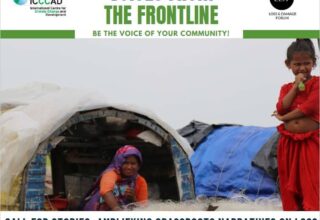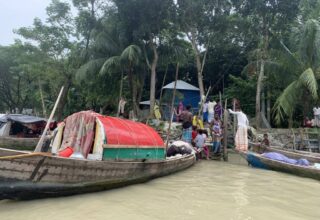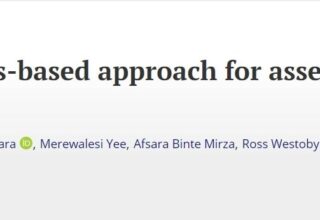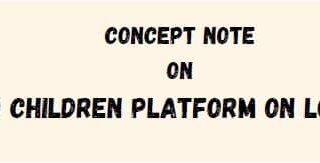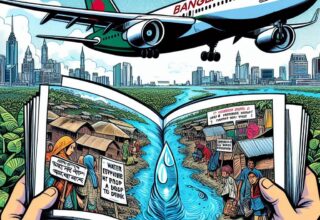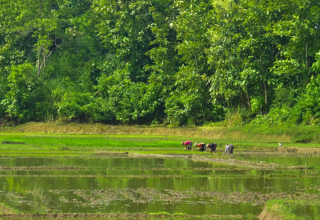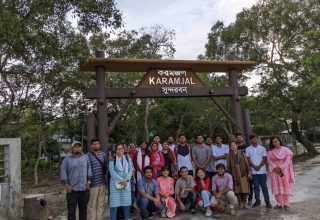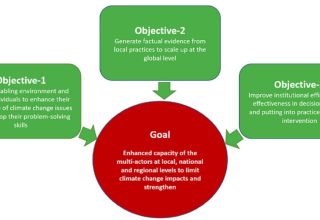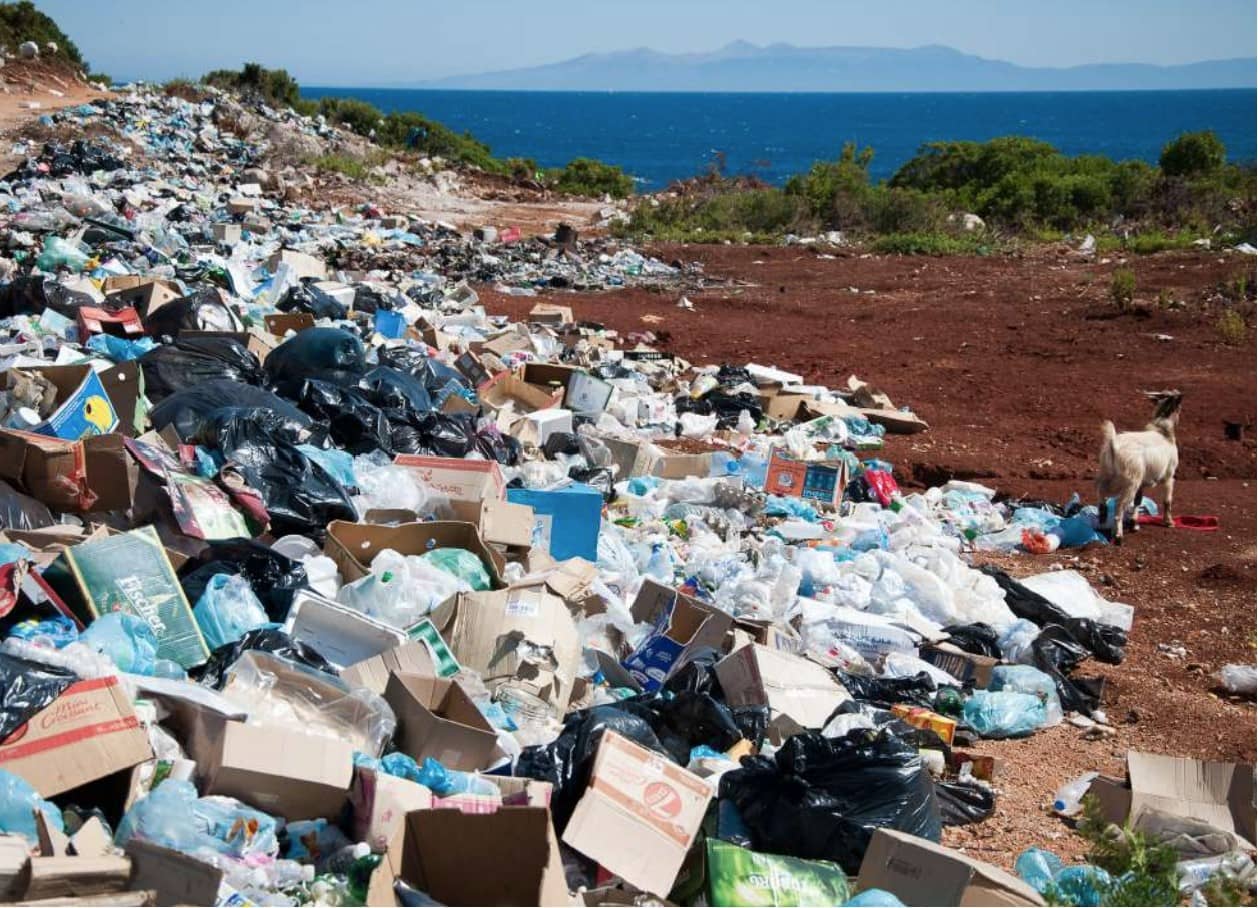
In June this year, we published the working paper centering local values in assessing and addressing climate-related losses and damages. The report includes a critical analysis of ‘non-economic’ loss and damage research. We mentioned how these studies assessing or conceptualising ‘non-economic’ losses and damages – which are highly culturally- and context-dependant and mostly occur in the Global South – are shaped by Western individuals and institutions. In this article, I aim to extend this critical perspective by highlighting the consequences of dichotomising ‘economic’ and ‘non-economic’ loss and damage.
A strict dichotomy
In 2013, the UNFCCC published a technical paper that proved to be a major influence on subsequent research. Written by a small group of Western environmental economists, the report defines ‘non-economic’ damages as those directly related to the economy: Non-economic losses can be understood as the remainder of items that are not economic items; that is to say that non-economic items are those that are not commonly traded in markets. Besides the fact that the authors deduce ‘non-economic’ loss and damage to only be the remainder of items that are not ‘economic’, they clearly delineate the ‘economic’ and ‘non-economic’. Later, they write that ‘the distinction between ‘non-economic’ loss and ‘economic’ loss will sometimes be blurred’. However, this nuance has since been largely ignored in both academic and policy circles, where studies tend to focus only on the ‘non-economic’ and nation states argue that a loss and damage fund should focus on ‘non-economic’ loss and damage.
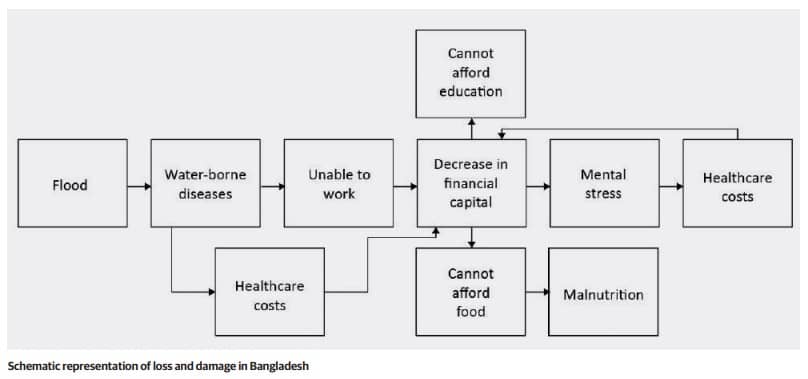
Figure 1 is an oversimplified schematic of loss and damage, inspired by evidence from southwest and north-central Bangladesh. It shows how floods can cause water-borne diseases. Illness can prevent people from working, reducing their income. Similarly, illness can force people to pay for health care, reducing their financial capital. A decrease in financial capital can prevent people from buying essential goods and services, such as education for their children or food. The latter can in turn lead to health problems. A
decrease in financial capital can also increase psychological stress, which can cause further financial damage as people have to buy medication in response.
“A decrease in financial capital can prevent people from buying essential goods and services, such as education for their children or food”
The consequences
Looking at Figure 1, it is complicated to separate the ‘economic’ from the ‘non-economic’. Different impacts cascade and are deeply intertwined. Life is made up of an infinite number of complex, interconnected aspects that are not inherently ‘economic’ or ‘non-economic’. For example, impacts on human health – which are typically categorised as ‘non-economic’ damages – can have serious economic consequences. Similarly, a reduction in financial capital can cause psychological distress. Thus, ‘economic’ losses and damages can cascade into ‘non-economic’ losses and damages and vice versa. This contradicts the statement that a loss and damage fund should – or even can – focus on one aspect of loss and damage. Addressing ‘non-economic’ loss and damage alone will not eliminate the impact on people’s mental health, as they will still feel the increasing pressure of financial insecurity. Addressing ‘economic’ loss and damage alone will not eradicate people’s inability to work because of illness. Efforts to address loss and damage should therefore recognise the interconnected nature of climate impacts and take a holistic approach to fully mitigate the adverse effects of climate change on people.
This is not to say that ‘non-economic’ loss and damage is not useful as a policy concept. It has been instrumental in highlighting the importance and presence of the subjective and intangible impacts of climate change. It has served as a vessel to make these often-invisible impacts visible in academic and political arenas, which has expanded our understanding of the extent of loss and damage occurring and funding needed to address climatic impacts However, we cannot assume that this political concept directly reflects how people experience loss and damage at the local level.
“The problem that conceptualisations are largely determined by Western actors and institutions and do not always accurately reflect local experiences is not unique to loss and damage”
A way forward
The problem that conceptualisations are largely determined by Western actors and institutions and do not always accurately reflect local experiences is not unique to loss and damage. In his article The Tout-Monde of Disaster Studies, French disaster scholar JC Gaillard challenges the hegemony of Western discourses on disaster studies, arguing that contemporary disaster discourse is based on normative, Western interpretations of life. He argues that in order to move towards a postcolonial agenda, local and grounded scholars should “move away from the hegemony of Western ontologies and epistemologies that have underpinned disaster studies”.
A way forward for scholarship on ‘non-economic’ loss and damage may be to further analyse how Western conceptualisations underpin the discourse, to examine deeply the consequences of this Western hegemony, and then to consciously move away from it to create a truly South-led vision of what ‘non-economic’ loss and damage is. Ultimately, a decolonial approach to ‘non-economic’ loss and damage can hopefully bridge the gap between the local and the global. In our working paper, we have tried to ignite this by taking a values-based approach – that is, analysing loss and damage from local values rather than predefined frameworks – this may be one of the approaches in which the discourse on ‘non-economic’ loss and damage can be reclaimed.
Authors: Douwe van Schie is working at the University of Bonn as a PhD candidate and at UNU-EHS as a senior research assistant, his research interest lies in Loss and Damage, social equality, and intersectionality.

